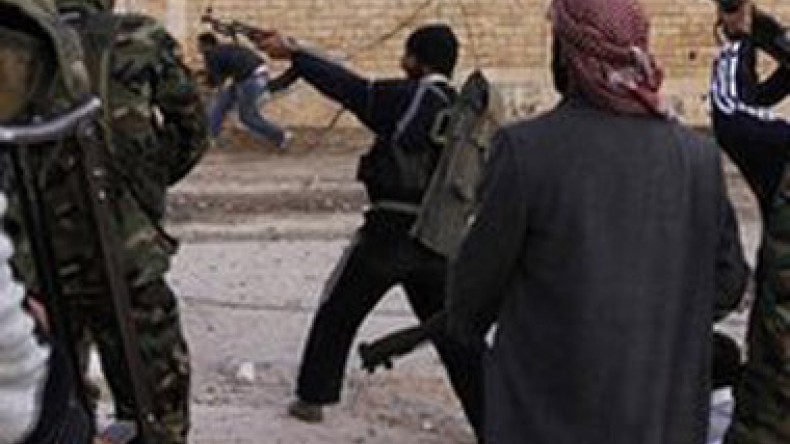
UK ministers to hold talks on Syria
Prime Minister David Cameron is to chair the National Security Council later to discuss the conflict in Syria, BBC reported.
Senior UK ministers will consider military, humanitarian and diplomatic options for dealing with the violence and the growing refugee crisis.
The prime minister visited a refugee camp on the Jordanian border last week.
BBC political editor Nick Robinson said the situation was reaching what one Downing Street adviser called the "something must be done stage".
The prime minister, his deputy Nick Clegg, Chancellor George Osborne and the foreign and defence secretaries are all expected to attend the meeting.
Among the options that could be discussed are a no-fly zone, supplying anti-aircraft weapons to Syria's opposition and encouraging other countries in the region to give arms, the BBC understands.
This week France became the first Western power to recognise Syria's opposition coalition as the sole legitimate representative of the Syrian people.
Syrian opposition groups struck a deal in the Qatari capital Doha to form a broad coalition to overthrow President Bashar al-Assad.
The US and the UK have both signalled support for the coalition but stopped short of recognising it as a government-in-exile.
The Syrian Arab Red Crescent also this week estimated that 2.5 million people had been displaced within Syria, doubling the previous figure used by aid agencies.
Israel's military has said its tanks scored "direct hits" on Syrian artillery units after mortar shells fell near an army post.
It came after Israel fired warning shots after it said a Syrian shell hit another of its army posts on the Israeli-occupied Golan Heights.
When he visited the refugee camp, Mr Cameron said the UK was to begin talks with armed Syrian rebels in a bid to unite the opposition to President Assad.
The prime minister said the suffering of the refugees was "horrendous".
Opposition and human rights activists estimate that more than 36,000 people have been killed since the uprising against President Assad's rule began in March 2011.
Mr Cameron gave the go ahead for UK military action when it came to supporting rebels in the Libyan revolution in 2011.
British aircraft carried out 3,000 missions - 2,000 of them strike sorties, about one-fifth of the Nato total.
Newsfeed
Videos






























